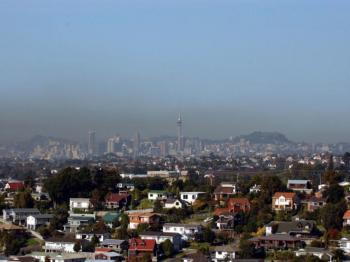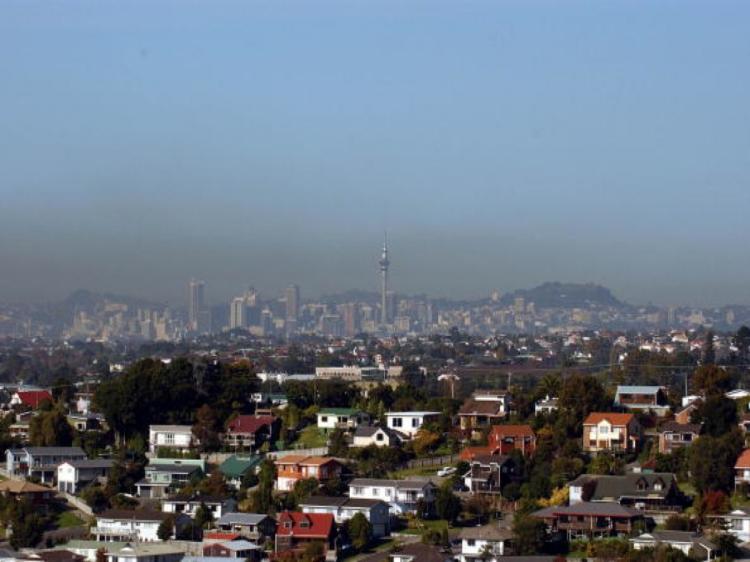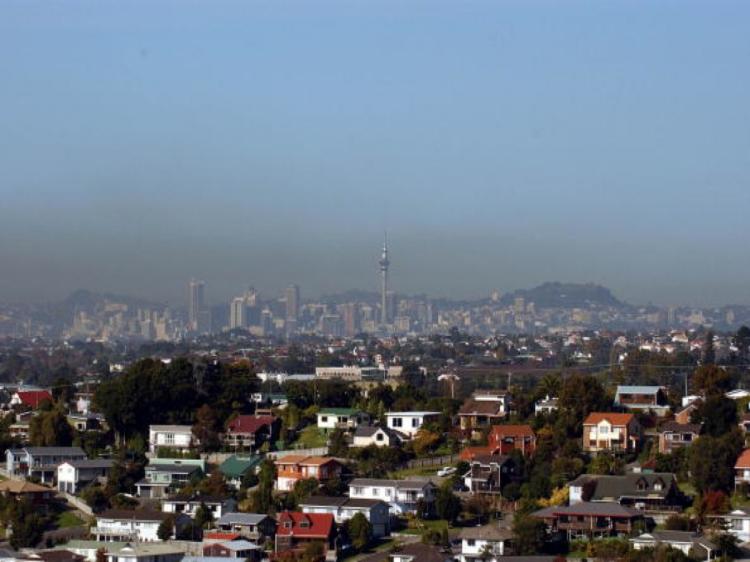AUCKLAND—New Zealand will continue with plans to implement the Emissions Trading Scheme (ETS) on July 1, despite neighboring Australia looking to defer their ETS plans until 2013.
Calls from the business community, agricultural sector, and the Act Party for the government to defer the ETS in line with Australia’s move are being ignored by the government.
Minister of Climate Change, Nick Smith, told Parliament Wednesday that it was too late to defer the ETS.
“There would be real instability and uncertainty in deferring the emission trading scheme’s introduction at this late stage,” he said.
Some businesses that had already invested heavily and entered into contracts could suffer if New Zealand did not proceed with its commitments.
Claims that New Zealand is going it alone are not true, said Smith. Twenty-nine countries with Kyoto commitments have an ETS in place.
But, John Boscawen, Act Party member of Parliament and climate change spokesperson, said that 27 of those countries form the European Union bloc, which trades within itself.
European Union countries are on the same level playing field as increased costs are leveled across the board, he said in a press release.
New Zealand will be placed at a disadvantage as its major trading partners, Australia, China, and the United States will not have an ETS in place.
“It must also be remembered that the EU ETS has been structured in such a way that there have been massive exemptions and allowances so it doesn’t apply to large parts of the European economy,” Boscawen said.
“The fact is that the New Zealand ETS will impose a significant cost burden across all Kiwi families, businesses, and exporters.”
New Zealanders will see the price of electricity go up by five percent and the price of gasoline will increase by four cents a liter (1.05 quarts), the release said.
“These are significant increases that will hurt ordinary New Zealanders, especially those already struggling to make ends meet,” Boscawen said.
The Government’s Emissions Trading Scheme is set to increase price levels by 0.4 percent after it comes into force on July 1, which is the same amount as today’s quarterly inflation result. The impact of this single piece of legislation will be equal to that of all other inflationary forces over the last quarter combined, said ACT Climate Change spokesman John Boscawen.
“Worst of all, the government is imposing this cost on Kiwis for no apparent benefit. New Zealand is too small to influence the climate on our own. That means, even if Nick Smith and John Key have got the science right, their scheme won’t make an iota of difference to the world climate unless the world’s major emitters act also.”
Mr. Boscawen says the government’s proposals are “radical” and doubts that the world’s worst polluters and our major trading partners will follow our lead.
“Unfortunately, while we’re too small to change the climate, the ETS is big enough to hurt our economy,” he said.
It is estimated that New Zealand produces 0.2 percent of total global emissions.
However, Minister Nick Smith says the government is aware of overseas developments and is placing importance on New Zealand businesses maintaining the competitive edge internationally.
“We have scheduled a review in 2011 and will not be proceeding with full obligations and additional sectors unless progress is made by New Zealand’s trading partners,” he said.
Smith denied claims that the ETS is a tax—saying carbon credits accruing to forest owners are calculated to reach $1100 million in contrast to the $350 million that families and businesses will have to pay for emissions.
Calls from the business community, agricultural sector, and the Act Party for the government to defer the ETS in line with Australia’s move are being ignored by the government.
Minister of Climate Change, Nick Smith, told Parliament Wednesday that it was too late to defer the ETS.
“There would be real instability and uncertainty in deferring the emission trading scheme’s introduction at this late stage,” he said.
Some businesses that had already invested heavily and entered into contracts could suffer if New Zealand did not proceed with its commitments.
Claims that New Zealand is going it alone are not true, said Smith. Twenty-nine countries with Kyoto commitments have an ETS in place.
But, John Boscawen, Act Party member of Parliament and climate change spokesperson, said that 27 of those countries form the European Union bloc, which trades within itself.
European Union countries are on the same level playing field as increased costs are leveled across the board, he said in a press release.
New Zealand will be placed at a disadvantage as its major trading partners, Australia, China, and the United States will not have an ETS in place.
“It must also be remembered that the EU ETS has been structured in such a way that there have been massive exemptions and allowances so it doesn’t apply to large parts of the European economy,” Boscawen said.
“The fact is that the New Zealand ETS will impose a significant cost burden across all Kiwi families, businesses, and exporters.”
New Zealanders will see the price of electricity go up by five percent and the price of gasoline will increase by four cents a liter (1.05 quarts), the release said.
“These are significant increases that will hurt ordinary New Zealanders, especially those already struggling to make ends meet,” Boscawen said.
The Government’s Emissions Trading Scheme is set to increase price levels by 0.4 percent after it comes into force on July 1, which is the same amount as today’s quarterly inflation result. The impact of this single piece of legislation will be equal to that of all other inflationary forces over the last quarter combined, said ACT Climate Change spokesman John Boscawen.
“Worst of all, the government is imposing this cost on Kiwis for no apparent benefit. New Zealand is too small to influence the climate on our own. That means, even if Nick Smith and John Key have got the science right, their scheme won’t make an iota of difference to the world climate unless the world’s major emitters act also.”
Mr. Boscawen says the government’s proposals are “radical” and doubts that the world’s worst polluters and our major trading partners will follow our lead.
“Unfortunately, while we’re too small to change the climate, the ETS is big enough to hurt our economy,” he said.
It is estimated that New Zealand produces 0.2 percent of total global emissions.
However, Minister Nick Smith says the government is aware of overseas developments and is placing importance on New Zealand businesses maintaining the competitive edge internationally.
“We have scheduled a review in 2011 and will not be proceeding with full obligations and additional sectors unless progress is made by New Zealand’s trading partners,” he said.
Smith denied claims that the ETS is a tax—saying carbon credits accruing to forest owners are calculated to reach $1100 million in contrast to the $350 million that families and businesses will have to pay for emissions.





